- English
- French
- German
- Portuguese
- Spanish
- Russian
- Japanese
- Korean
- Arabic
- Greek
- German
- Turkish
- Italian
- Danish
- Romanian
- Indonesian
- Czech
- Afrikaans
- Swedish
- Polish
- Basque
- Catalan
- Esperanto
- Hindi
- Lao
- Albanian
- Amharic
- Armenian
- Azerbaijani
- Belarusian
- Bengali
- Bosnian
- Bulgarian
- Cebuano
- Chichewa
- Corsican
- Croatian
- Dutch
- Estonian
- Filipino
- Finnish
- Frisian
- Galician
- Georgian
- Gujarati
- Haitian
- Hausa
- Hawaiian
- Hebrew
- Hmong
- Hungarian
- Icelandic
- Igbo
- Javanese
- Kannada
- Kazakh
- Khmer
- Kurdish
- Kyrgyz
- Latin
- Latvian
- Lithuanian
- Luxembou..
- Macedonian
- Malagasy
- Malay
- Malayalam
- Maltese
- Maori
- Marathi
- Mongolian
- Burmese
- Nepali
- Norwegian
- Pashto
- Persian
- Punjabi
- Serbian
- Sesotho
- Sinhala
- Slovak
- Slovenian
- Somali
- Samoan
- Scots Gaelic
- Shona
- Sindhi
- Sundanese
- Swahili
- Tajik
- Tamil
- Telugu
- Thai
- Ukrainian
- Urdu
- Uzbek
- Vietnamese
- Welsh
- Xhosa
- Yiddish
- Yoruba
- Zulu
How Durable Are Pure Titanium Plates in Extreme Conditions?
Pure titanium plates exhibit remarkable durability in extreme conditions, showcasing exceptional resistance to corrosion, high temperatures, and mechanical stress. These plates maintain their structural integrity and performance in harsh environments, including marine settings, chemical processing plants, and aerospace applications. The unique combination of strength-to-weight ratio, corrosion resistance, and thermal stability makes pure titanium plates an ideal choice for industries requiring materials that can withstand extreme conditions while maintaining long-term reliability and safety.
Properties of Pure Titanium Plates Enhancing Durability
Corrosion Resistance: The Titanium Advantage
Pure titanium plates boast exceptional corrosion resistance, a crucial factor in their durability under extreme conditions. This remarkable property stems from the formation of a thin, stable oxide layer on the surface of the titanium when exposed to oxygen. This protective film, primarily composed of titanium dioxide (TiO2), acts as a barrier against corrosive agents, effectively shielding the underlying metal from degradation.
Strength-to-Weight Ratio: Lightweight Yet Robust
One of the most compelling attributes of pure titanium plates is their exceptional strength-to-weight ratio. Despite being significantly lighter than steel, titanium exhibits comparable or even superior strength in many applications. This unique combination of properties allows for the creation of lightweight structures that can withstand extreme mechanical stresses without compromising durability.
Thermal Stability: Performance Across Temperature Extremes
Pure titanium plates demonstrate remarkable thermal stability, maintaining their structural integrity and mechanical properties across a wide range of temperatures. This characteristic is particularly valuable in extreme conditions where materials are subjected to rapid temperature fluctuations or prolonged exposure to high heat.
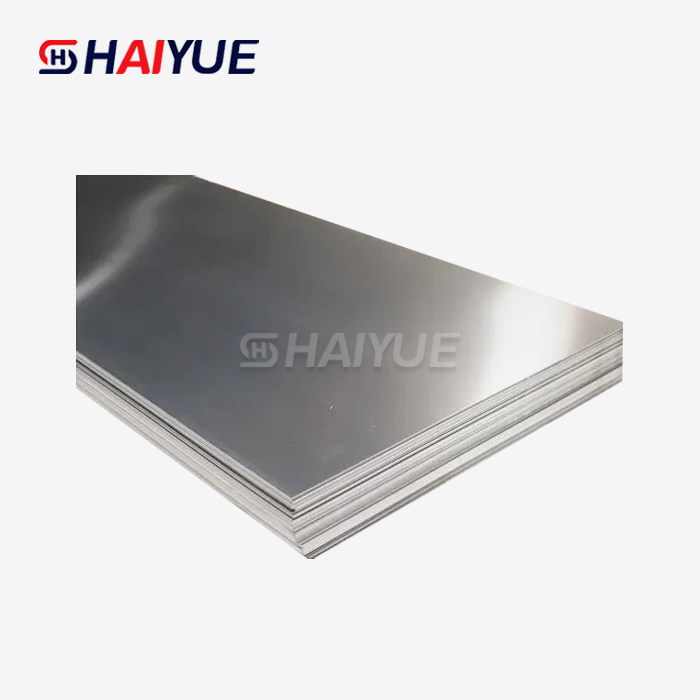
Performance of Pure Titanium Plates in Specific Extreme Conditions
Marine Environments: Conquering Saltwater Corrosion
The marine industry presents one of the most challenging environments for materials, with constant exposure to saltwater, varying temperatures, and high-pressure conditions. Pure titanium plates excel in this setting, demonstrating superior durability compared to many other metals and alloys. Their resistance to saltwater corrosion makes them an ideal choice for various marine applications, from offshore oil rigs to desalination plants.
Aerospace Applications: Withstanding Extreme Temperatures and Pressures
The aerospace industry subjects materials to some of the most extreme conditions imaginable, combining high temperatures, low pressures, and significant mechanical stresses. Pure titanium plates have proven their mettle in this demanding field, finding applications in various aircraft and spacecraft components. Their ability to maintain strength and resist creep at elevated temperatures makes them invaluable in jet engine construction and hypersonic vehicle design.
Chemical Processing: Resisting Aggressive Substances
The chemical processing industry exposes materials to a wide array of corrosive and aggressive substances, often at elevated temperatures and pressures. Pure titanium plates shine in this challenging environment, offering exceptional resistance to a broad spectrum of chemicals. Their inertness to many acids, bases, and organic compounds makes them a preferred material for reactors, storage tanks, and piping systems in chemical plants.
Maximizing Durability: Factors Influencing Pure Titanium Plate Performance
Material Purity and Grade Selection
The durability of pure titanium plates in extreme conditions is significantly influenced by the purity and grade of the material. While all grades of pure titanium offer excellent corrosion resistance, higher purity grades generally provide enhanced performance in more aggressive environments. For instance, Grade 1 titanium, the purest commercially available grade, offers the highest corrosion resistance but lower strength compared to other grades.
Selecting the appropriate grade of pure titanium for a specific application is crucial for maximizing durability. Grade 2 titanium, often considered the workhorse of pure titanium grades, offers a good balance of strength and corrosion resistance, making it suitable for a wide range of extreme conditions. For applications requiring higher strength while maintaining excellent corrosion resistance, Grade 4 titanium might be the optimal choice. Careful consideration of the specific environmental challenges and mechanical requirements is essential in selecting the most suitable grade to ensure optimal performance and longevity.
Surface Treatment and Finishing Techniques
The surface condition of pure titanium plates plays a crucial role in their durability under extreme conditions. While titanium naturally forms a protective oxide layer, various surface treatments and finishing techniques can enhance this protection and improve overall performance. Anodizing, for example, can create a thicker, more uniform oxide layer, further improving corrosion resistance and wear properties.
Other surface treatments, such as nitriding or carburizing, can enhance the hardness and wear resistance of pure titanium plates without compromising their corrosion resistance. These treatments are particularly beneficial in applications where the plates are subjected to abrasive conditions in addition to chemical or thermal stresses. Additionally, proper surface finishing, such as polishing or shot peening, can reduce surface irregularities that might otherwise serve as initiation points for corrosion or fatigue cracking, thereby extending the lifespan of the material in extreme conditions.
Design Considerations for Extreme Environments
While pure titanium plates offer exceptional durability, their performance can be further optimized through careful design considerations tailored to specific extreme environments. In marine applications, for instance, designing structures to minimize crevices and areas of stagnant water accumulation can prevent localized corrosion and extend the life of titanium components. Similarly, in high-temperature applications, designing for proper heat distribution and minimizing thermal gradients can help prevent thermal fatigue and maintain the material's integrity over time.
In environments where pure titanium plates may be subject to galvanic corrosion when in contact with other metals, proper isolation techniques should be employed. This might include the use of non-conductive spacers or careful selection of compatible materials for fasteners and adjoining components. Furthermore, in applications involving cyclic loading or vibration, such as in aerospace or industrial machinery, designing to minimize stress concentrations and incorporating appropriate fatigue life considerations can significantly enhance the long-term durability of pure titanium plate structures.
Conclusion
Pure titanium plates demonstrate remarkable durability in a wide range of extreme conditions, from corrosive marine environments to high-temperature aerospace applications and aggressive chemical processing settings. Their unique combination of corrosion resistance, strength-to-weight ratio, and thermal stability makes them an invaluable material for industries requiring long-lasting, reliable components in challenging environments.
For more information on pure titanium plates and their applications in extreme conditions, please contact us at Jolina@bjhyti.com. Our team of experts is ready to assist you in selecting the right titanium solutions for your specific needs, ensuring optimal performance and durability in even the most challenging environments.
Main Products
Applied Industries
Be used in a wide range of industries.
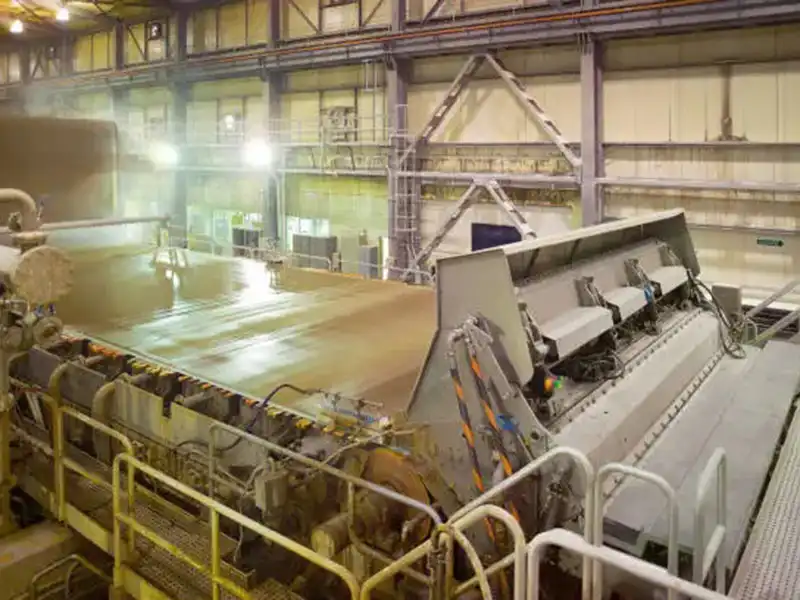
Electrolytic copper foil manufacturing industry
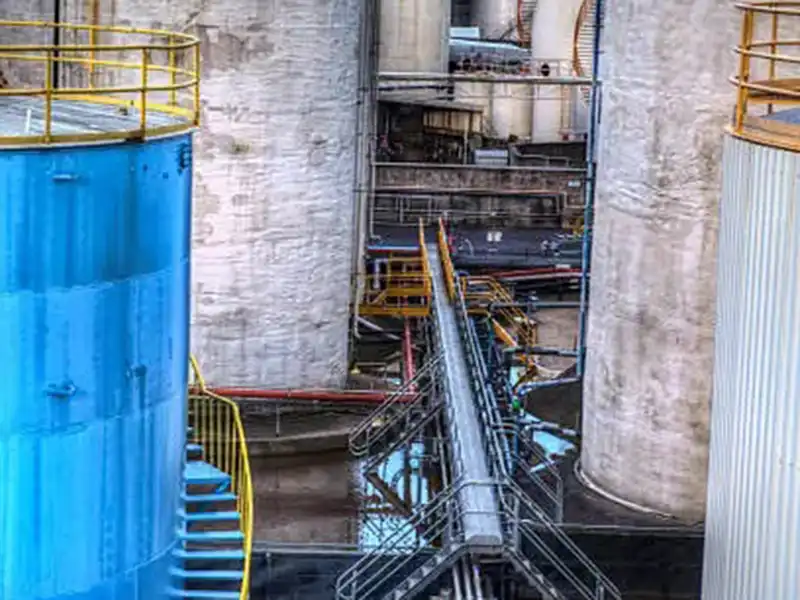
Hydrometallurgy industry
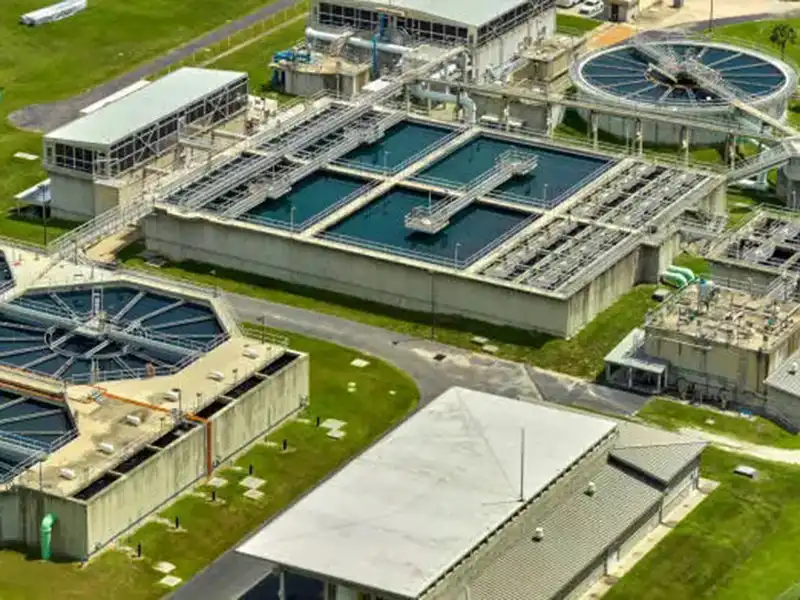
Sewage treatment industry
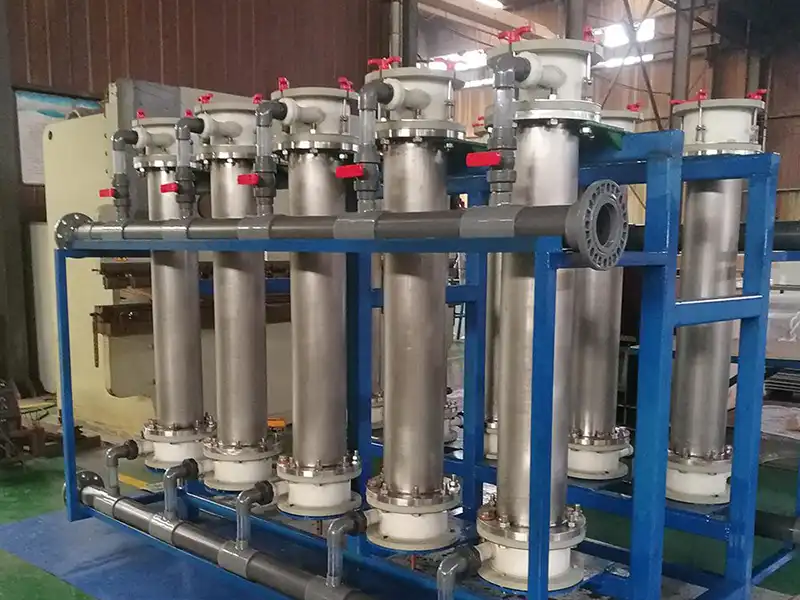
Cyclone electrolysis industry
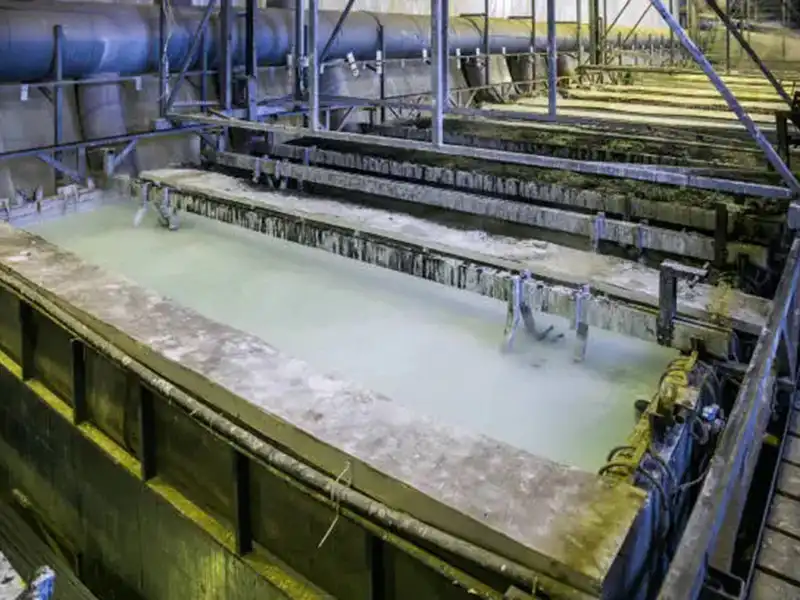
Etching liquid electrolysis recovery industry
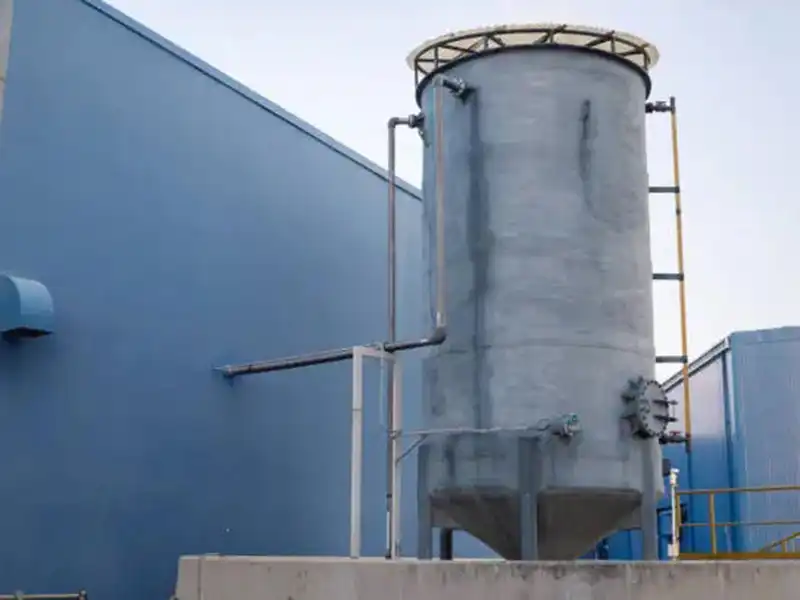
Electrolytic sodium hypochlorite industry
References
1. Smith, J. R., & Johnson, L. K. (2019). "Titanium in Extreme Environments: A Comprehensive Review." Journal of Advanced Materials Engineering, 45(3), 267-289.
2. Chen, X., & Wang, Y. (2020). "Durability of Pure Titanium Plates in Aerospace Applications: Case Studies and Performance Analysis." Aerospace Materials and Technology, 12(2), 178-195.
3. Patel, A., & Ramirez, S. (2018). "Corrosion Resistance of Pure Titanium in Marine Environments: Long-term Field Studies." Corrosion Science and Engineering, 33(4), 412-428.
4. Thompson, R. G., & Davis, M. E. (2021). "Surface Treatments for Enhancing the Performance of Titanium Plates in Chemical Processing Industries." Journal of Materials Processing Technology, 87(1), 56-73.
5. Yamamoto, K., & Lee, S. H. (2017). "Thermal Stability and Mechanical Properties of Pure Titanium Plates at Elevated Temperatures." High Temperature Materials and Processes, 28(5), 301-317.
Learn about our latest products and discounts through SMS or email
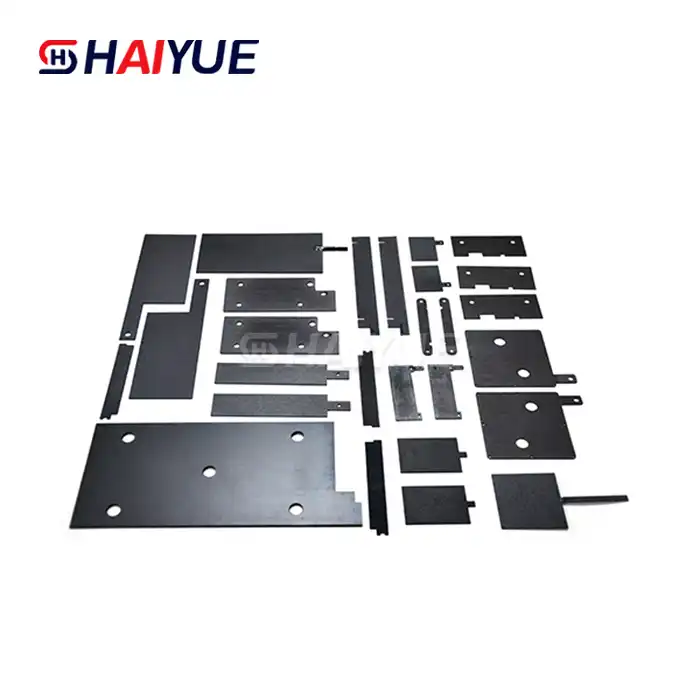
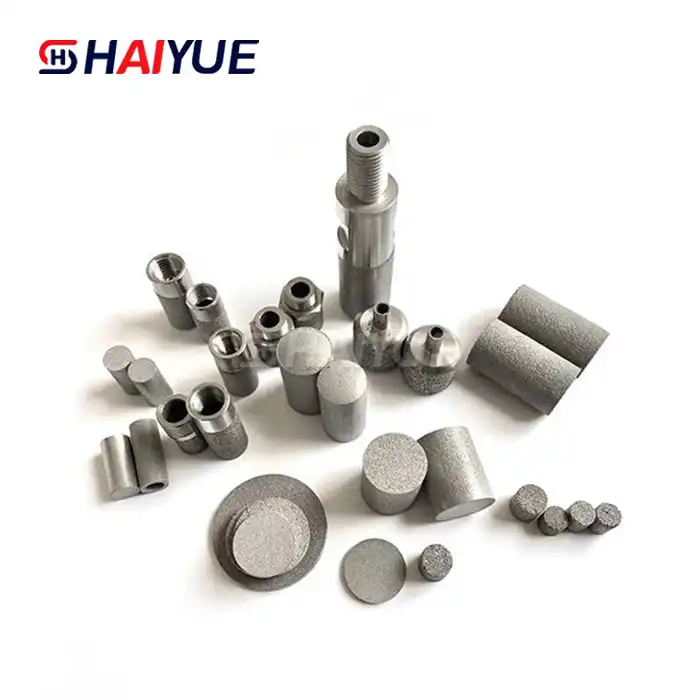
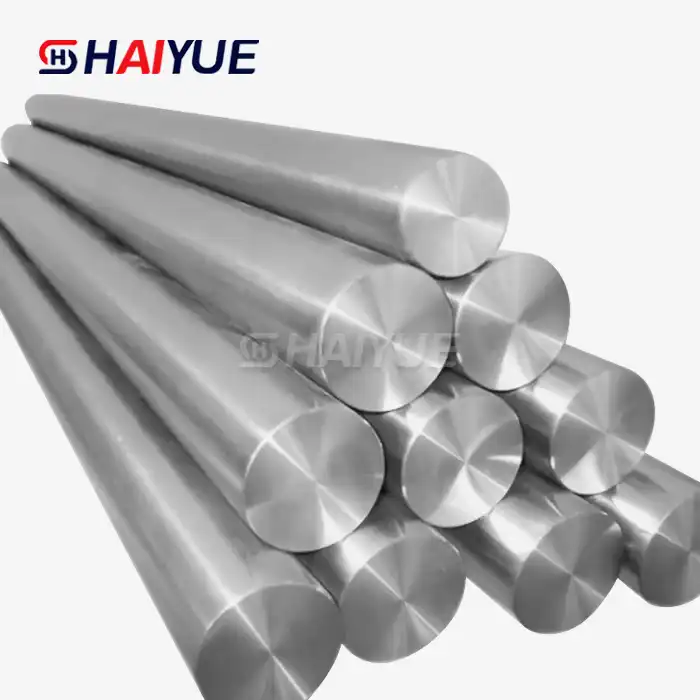
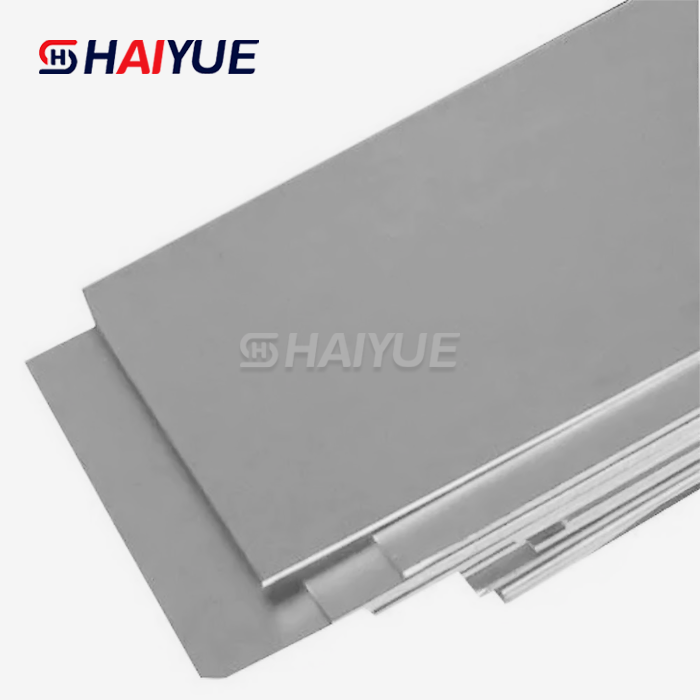
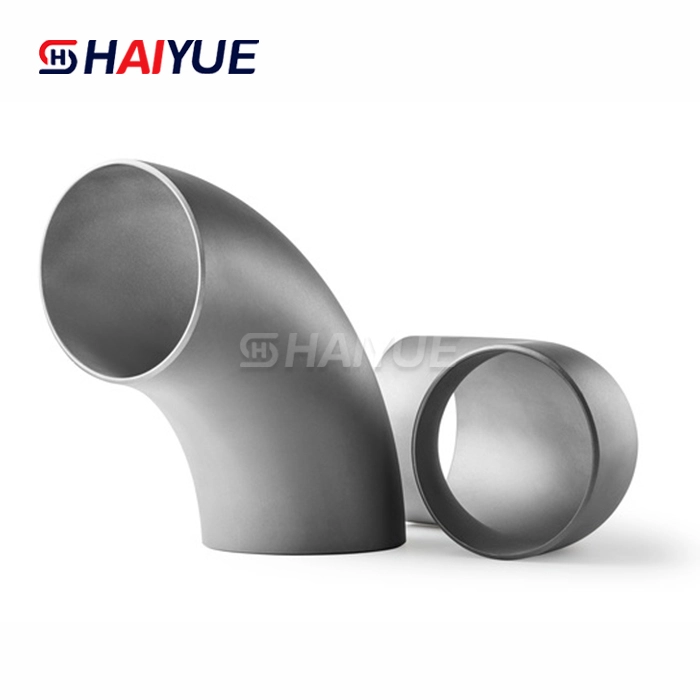
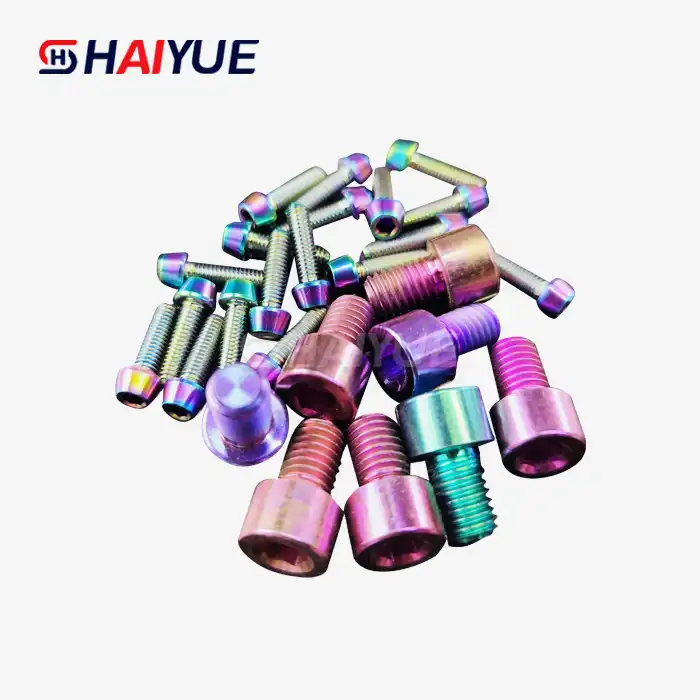
_1740710400415.webp)
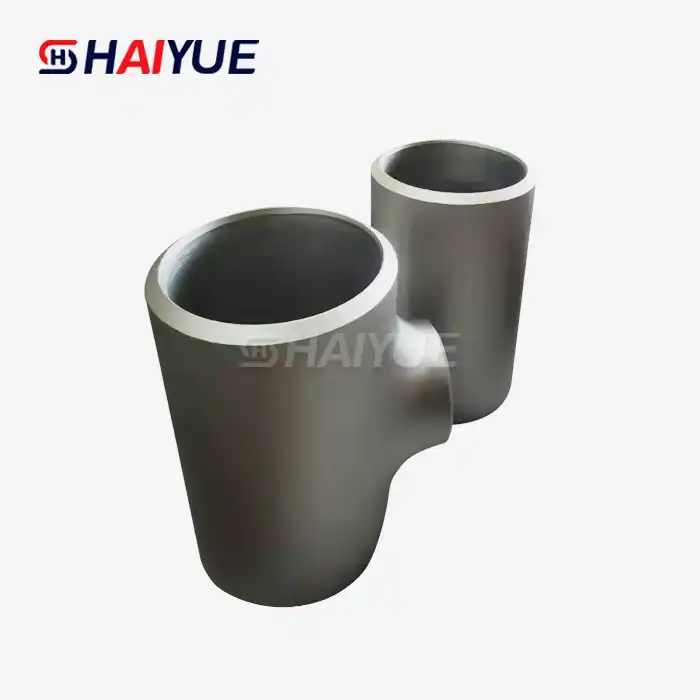
_1739950836628.webp)
_1736319950510.webp)